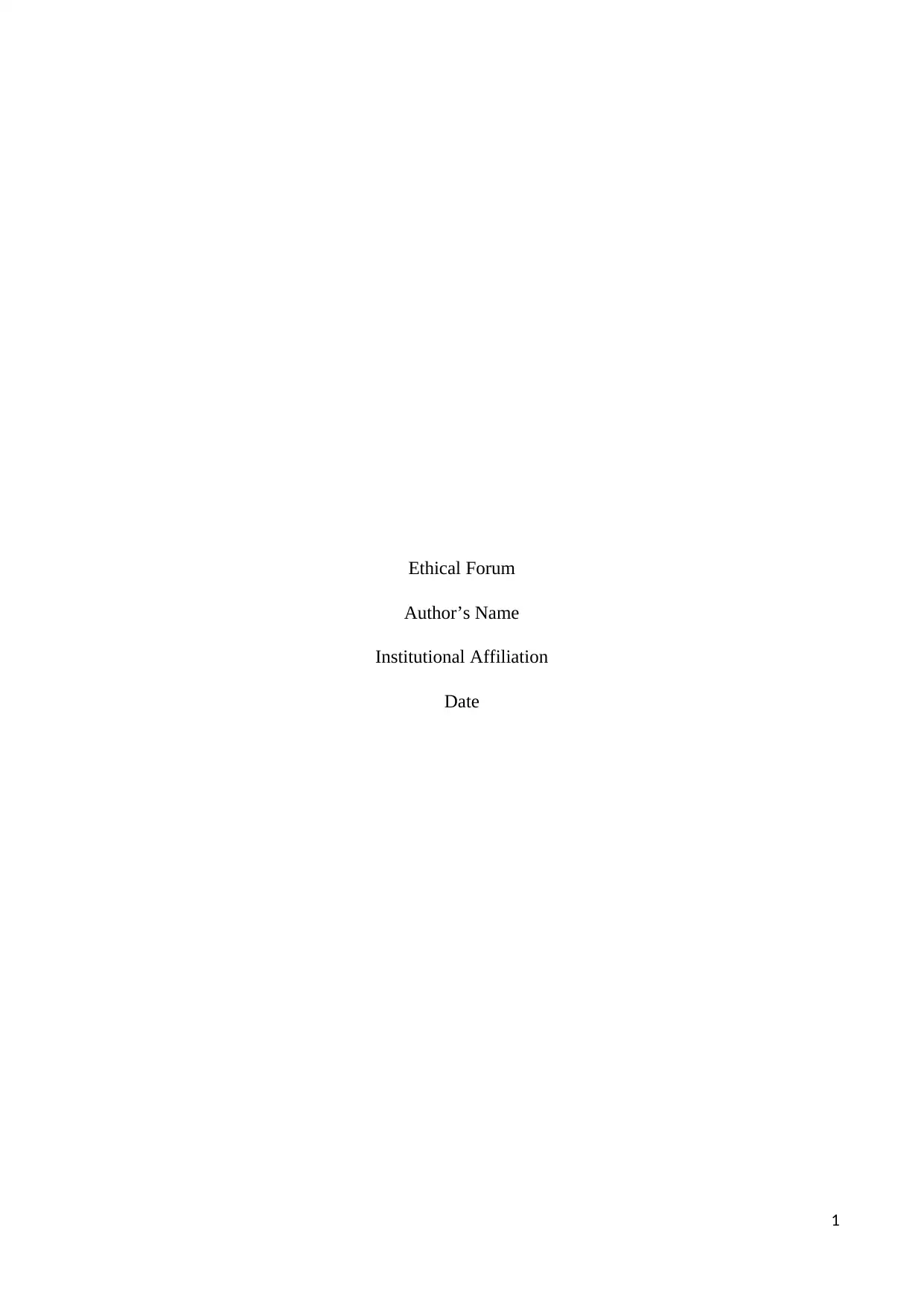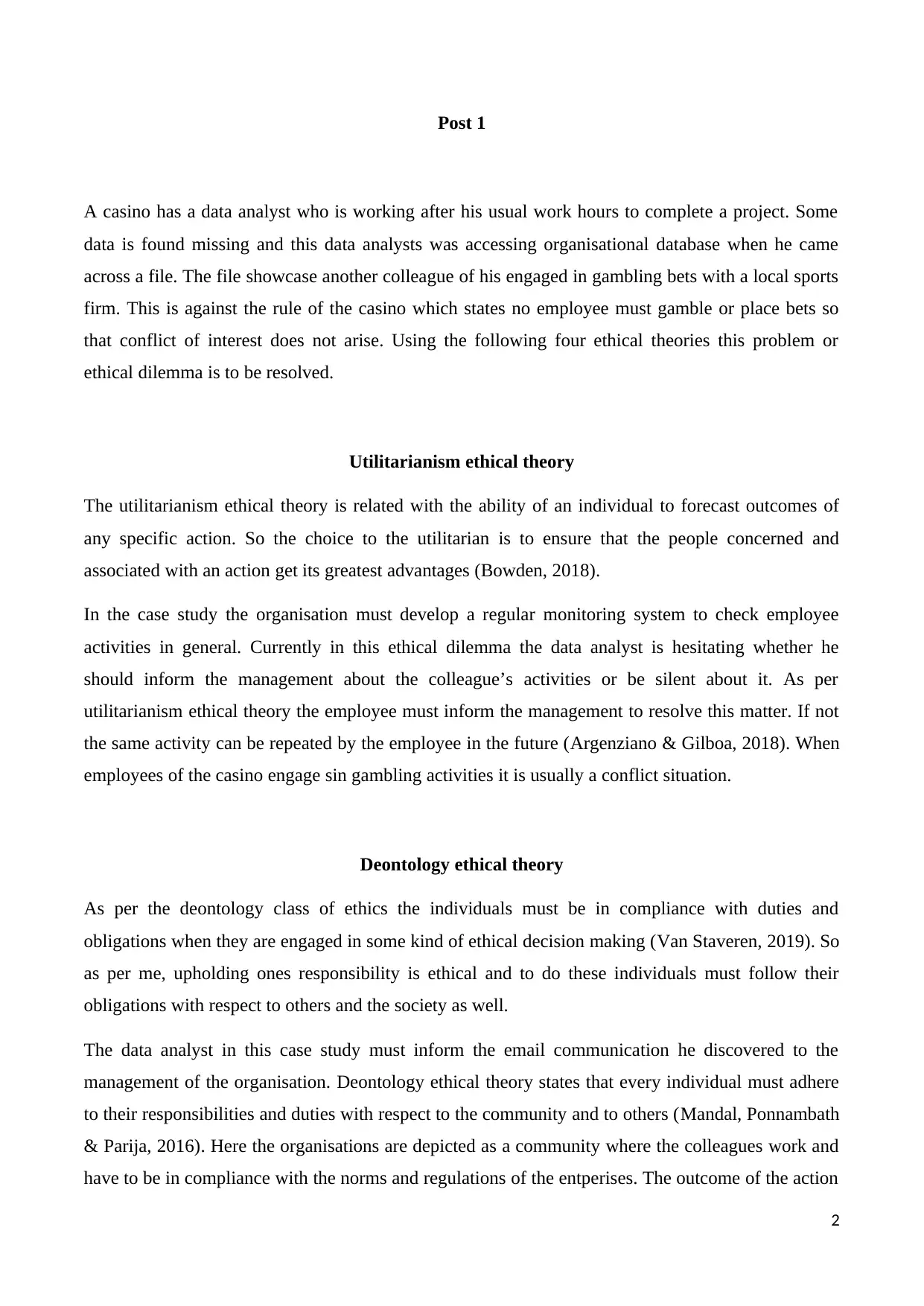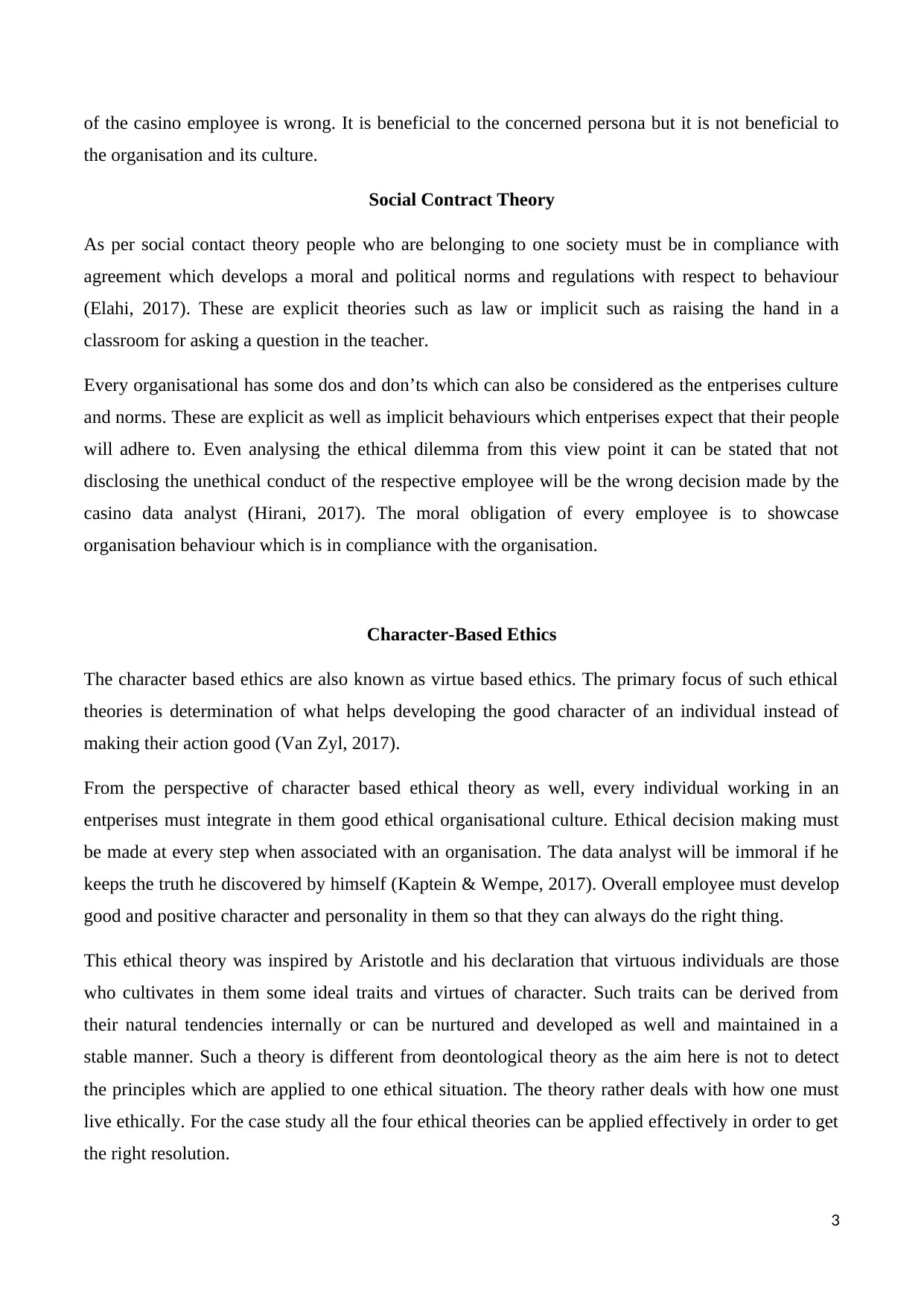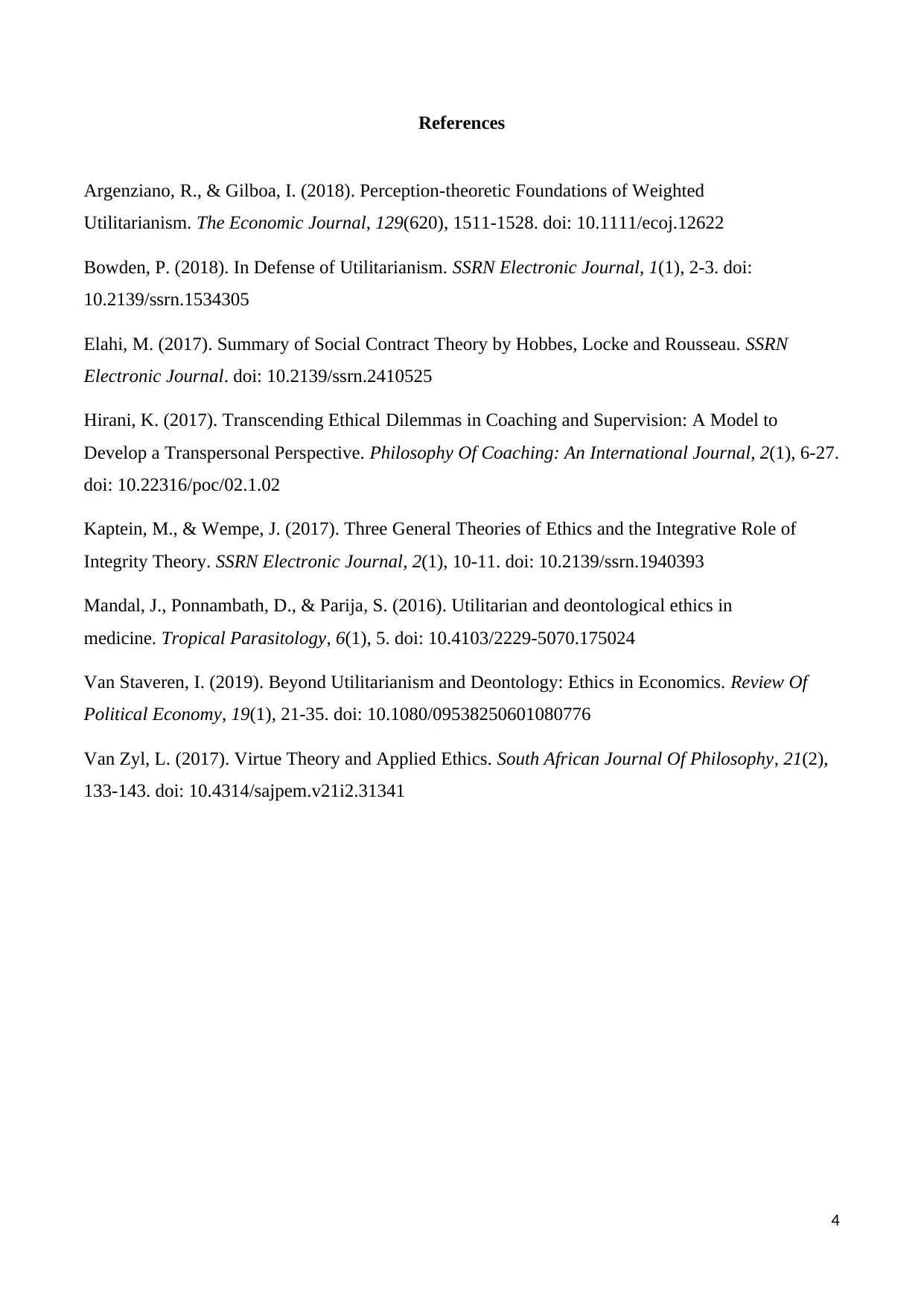Ethical Forum: Analysis of Ethical Dilemma in IT Service Management
VerifiedAdded on 2022/09/26
|4
|1104
|20
Discussion Board Post
AI Summary
This discussion board post presents a student's analysis of an ethical dilemma faced by a casino data analyst. The analyst discovers a colleague engaging in gambling, which violates company policy. The post explores how four ethical theories—utilitarianism, deontology, social contract theory, and character-based ethics—can be applied to resolve this conflict. The student argues that the data analyst should inform management, aligning with the principles of each theory to uphold organizational integrity and ethical conduct. The analysis references relevant literature to support the arguments, highlighting the importance of ethical decision-making in IT service management and professional culture. The post emphasizes the need for consistent monitoring systems and adherence to company policies to prevent conflicts of interest and maintain a positive work environment. The discussion covers the implications of each ethical framework in relation to the case study, providing a comprehensive examination of the ethical considerations involved.
1 out of 4








![[object Object]](/_next/static/media/star-bottom.7253800d.svg)